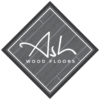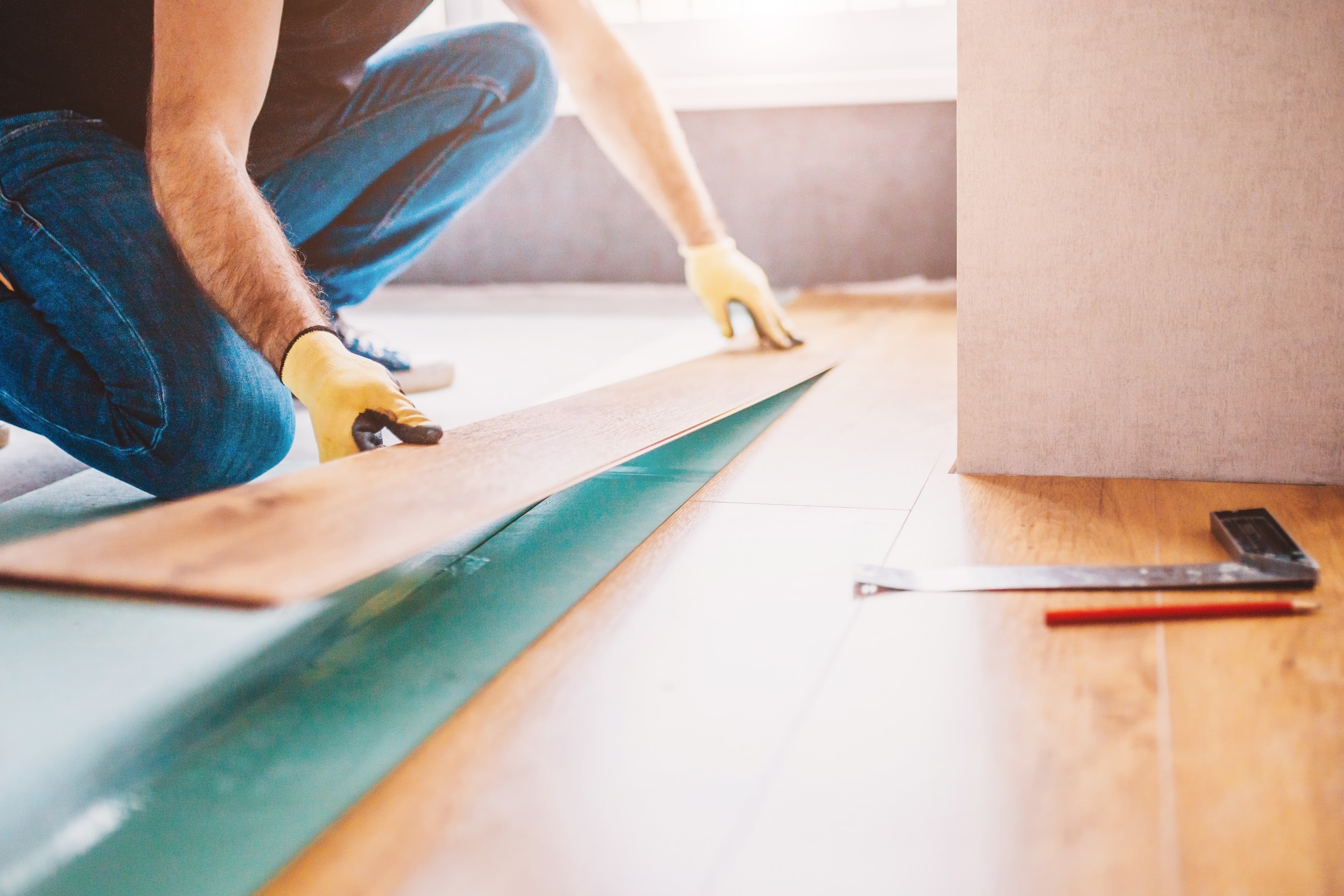There are generally four types of hardwood flooring: solid, engineered, unfinished, and pre-finished. Each type can bring something different to your home or business, so it is important to know exactly what you want. For instance, prefinished hardwood cannot be customized as freely as other types of hardwood flooring, yet it is available in a variety of colors and is highly durable. Engineered hardwood, on the other hand, is more flexible and can be installed over a host of different flooring including wood, tile, or linoleum.
Installing New Hardwood Floors
Once you decide what type of hardwood flooring you want, you will next have to think about installing it. There are a number of different types of hardwood floor installations as well. From easier installs, to sound reduction, each method brings something different to the table. When it comes time to install your new hardwood floors, you are going to want to bring in a professional to help out. A messy floor installation can be a disaster. Hardwood floor installation experts will be able to help with distribution, lamination, installation, restoration and repairs, and more. They will also be able to help with finding the right style, design, and finish of hardwood flooring that will last. Bringing in the right contractor can make all the difference when installing your hardwood flooring. Here are four types of hardwood floor installations to consider before your next project.
Nail or Staple Down Solid Wood
The first method of hardwood floor installation is the nail or staple down method. This is typically used for solid wood flooring or when there is a wooden subfloor. If you are interested in this method, see what professionals offer hardwood floor installation services near you. This method works by driving down the flooring cleats into the tongue of the flooring, then are secured into the subfloor.
Easily Install Floating Hardwood Floors
If your biggest concern is ease of installation, then a floating hardwood floor might be right for you. A floating floor consists of engineered hardwood that is installed by attaching each board any adherence to the subfloor. These can generally be installed over existing floor structures. A bead of glue is used to attach each board together on the tongue. The boards then move together as one unit, which helps reduce any cracks between boards in areas of fluctuating temperature or humidity levels.
Glue Down Hardwood Floors
One interesting benefit of glue installations is that they can work as a sound-reduction barrier that can help soften the transfer of noise when hardwood is installed in apartment buildings and high rises. Glue is primarily used to attach hardwood flooring when nailing is not an option. This option provides an alternative method to nailing, which also has its own unique benefits when it comes to reducing sound and getting the look and style that you want.
Nail Down Hardwood Floors
A combination of nailing and gluing down hardwood floors is also used on occasion. For example, you might want to use this technique when faced with the challenge of installing plank flooring 4” and wider. In this case, it might be best to call in a professional hardwood floor installation expert, so that you can make sure that your new hardwood flooring is up to code.
Hardwood Flooring Installations in Passaic County, NJ
At Ash Wood Floors, we have years of experience in hardwood floor installation. We provide home and business owners throughout Northern New Jersey with the style, design, installation, and finish for hardwood flooring, which will give your space a whole new and classic appearance for years to come. If you are interested in having hardwood flooring installed for your home or business by the right professionals, contact us today.

